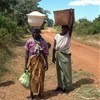Communities can provide health authorities with essential information on how people perceive and experience health and risks, and how people engage with health systems in their areas. They can explain why people fail to use antiretrovirals despite their availability, or why domestic violence remains unreported.
More generally, asking communities about their health problems can help explain how social situations shape exposure to risk, which in turn determines health. This is information that is not available from sources such as a country’s vital registration system, which records births and deaths.
Health planning needs to take community views into account if it is to be more responsive to the situation of patients in a specific area, and towards uncovering the root causes of many common conditions.
Looking beyond statistics
South Africa’s vital registration system provides information on births, deaths and the medical cause of death. But such data doesn’t provide health authorities with insight into the socioeconomic context in which these deaths occur, or other contributing factors.There is an urgent need to generate robust evidence that shows how the social determinants of health – discrimination, poor housing, unemployment and lack of education – influence people’s abilities to protect themselves against health risks. By examining these issues, the health of marginalised groups can be more accurately represented and tackled.
We developed a community-based study in South Africa to discover local knowledge on two causes of death: AIDS-related deaths and deaths due to violent assault. Our study was published in the Journal of Global Health.
Global statistics reflect that South Africa accounts for 17% of the world’s HIV burden, although it only constitutes 0.7% of the world’s population. The country has the world’s largest antiretroviral initiative covering more than 2.5 million people. The country’s disease burden is skewed towards vulnerable populations, especially the country’s black population.
Social and structural drivers contribute to HIV/AIDS being a critical public health challenge. These include mobile populations, over-crowded settlements and exploitative migrant labour practices.
Working with local communities
In our study, three community groups were convened in the Mpumalanga province, where an established longitudinal health surveillance site exists. A series of meetings was held with groups to identify and define the causes, treatments and problems around HIV/AIDS and violent assault.The groups revealed the connections between social and health systems issues, and deaths due to HIV/AIDS and violence. These related to issues like the use of traditional medicine, alcohol and substance abuse, unstable relationships and debt.
We found that in some communities in Mpumalanga, financial dependence played a significant role, guiding women’s sexual relationships and determining how they dealt with HIV/AIDS and domestic violence.
Our study found that the need for financial security:
- stopped women from reporting domestic violence;
- encouraged young, poor women to trade sex for money; and
- encouraged women to have unsafe sex to avoid losing their partners.
Many women were in relationships for financial security and this constrained their ability to practice safe sex. They would not suggest using condoms as this would make their partners suspicious of their fidelity. This would threaten their relationships with partners who supported them socially and financially.
There were also serious problems in clinics across communities when it came to confidentiality and sensitivity. The disclosure of people’s HIV statuses – and the stigma surrounding the disease – affected their willingness to seek treatment. This made it difficult to treat and report HIV.
A similar pattern played out in cases of violent assault. Women would rather resort to home-based therapies to treat their wounds and hide assaults from authorities. In this way they would not compromise their household stability and income. But such actions could have fatal consequences, as participants reported that some women were beaten to death.
Using local knowledge
Although these findings are not new, they confirm the important role that communities can play by providing data when they are routinely consulted as part of data collection in health and socio-demographic surveillance sites.The research was based on the premises that health inequalities are socially constructed and determined. Engaging with people who are directly affected by these issues gives researchers and policymakers important knowledge for policy and planning. Ultimately, it improves the ownership – and management – of health problems.
Further work is underway where community perspectives are being used to begin a dialogue with health planners and policy makers. The objective is to bring together researchers, communities and health authorities to connect robust evidence with the means for remedial action.
Lucia D'Ambruoso, Lecturer in Global Health, University of Aberdeen
This article was originally published on The Conversation. Read the original article.

No comments:
Post a Comment